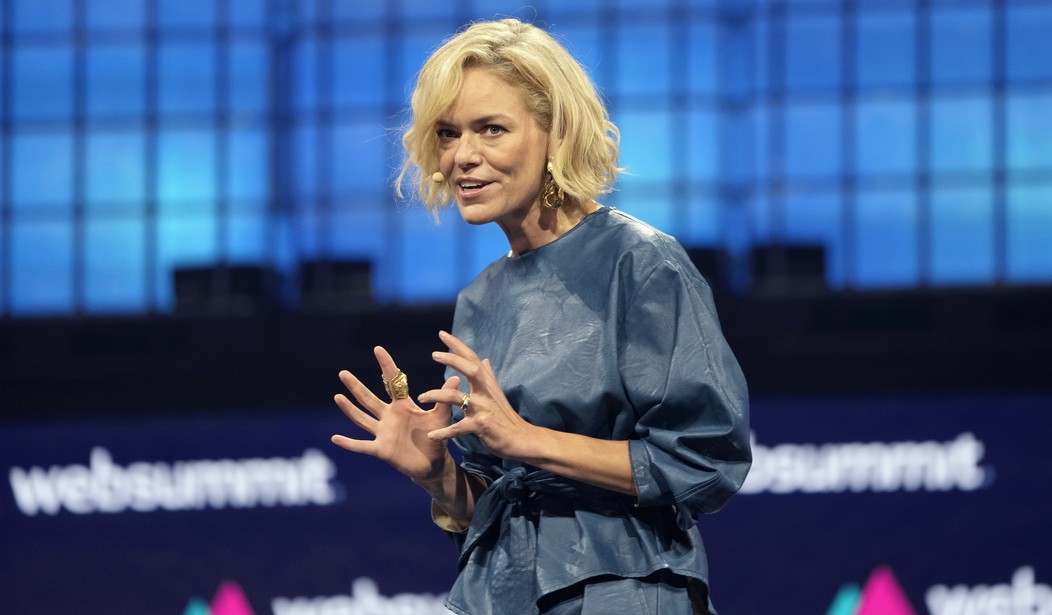Tell an NPR supporter that their network is "Government Media", and the standard response has always been "Ack-shyu-ally, NPR only gets 2% of its funding from the federal government".
"So then you won't really miss the money", you might respond.
"NOOOOOOOOOO! You'll be killing Teri Gross and Elmo!"
Until this past week or so, I thought "Government funding is simultaneously no big deal and a life or death essentail" was the biggest conundrum NPR supporters faced.
NPR didn't help itself out much by responding to charges of editorial bias by picking Katherine Maher as CEO - a woman with impeccable credentials who proposed doubling down on everything that'd made NPR suspect in the first place:
Maher has supported “deplatforming” anyone she deems to be “facsists” and even suggested that she might support “punching Nazis.” She also declared that “our reverence for the truth might be a distraction [in] getting things done.”
As expected, the bias at NPR only got worse. The leadership even changed a longstanding rule barring journalists from joining political protests.
One editor had had enough. Uri Berliner had watched NPR become an echo chamber for the far left with a virtual purging of all conservatives and Republicans from the newsroom. Berliner noted that NPR’s Washington headquarters has 87 registered Democrats among its editors and zero Republicans.
Well, that backfired, didn't it?
NPR and PBS have faced a crescendo of discontent in Congress over the past year, as a Republican majority buoyed by a successful election started asking inconvenient questions:
Republicans repeatedly cited Uri Berliner, a senior business editor for NPR who resigned last year after publishing an essay critical of the network's news coverage. Berliner argued that NPR's coverage increasingly reflects a rigid progressive ideology.
Rep. Jim Jordan, R-Ohio, pointed to Berliner's accusation that "in the D.C. area editorial positions at NPR, he said he found 87 registered Democrats, 0 Republicans."
"Is that accurate?" he asked Maher. She responded: "We don't track voter registrations."
Jordan asked whether Berliner was lying. "I'm not presuming such, but we don't track that information about our journalists," the NPR CEO said.
But the ongoing debate on defunding NPR and the Corporation for Public Broadcasting is just got a new wrinkle: National Public Radio is having to appeal to those it neglects, if not openly despises - rural Americans - to try to justify its funding.
For smaller stations — many of which are in rural parts of the country — the funding makes up critical chunks of their yearly operating budgets. Many of them are being forced to plan how they’ll survive the cuts, if they can at all, public media executives say.
Local leaders say the cuts would not only deprive their audiences of news and educational programming, but could also lead to a breakdown of the emergency broadcast message infrastructure that is critical for communities with less reliable internet or cellular service.
Turns out public radio outside major (read: blue) cities does pretty much rely on government funding after all. NPR's David Folkenflik interviewed Tim Black, an Indiana state public radio executive on Morning Edition:
BLACK: We're very good at giving them 30 minutes about an issue, whereas if you tune into a local commercial media outlet, you're probably going to get 30 seconds of something. And I think that's what we're providing to the community.
FOLKENFLIK: All of that, Black says, is now in doubt. As part of sweeping budget cutbacks in Indiana, elected officials unexpectedly eliminated all state funding for 17 Hoosier public broadcasting stations. That's about $3.6 million. That means a team of eight journalists who cover Indiana politics and policy for those stations will soon be disbanded. Black says more cuts are in store.
BLACK: I'm in the process of doing budgeting right now, and what it means for me immediately is some programming losses.
FOLKENFLIK: Local donors have stepped up, conditioned no doubt by years of pledge drives and text appeals, but Black says he's trying to avoid layoffs in his staff of 26.
As someone who grew up working in rural radio, I feel for many of the rural public broadcasters; they are much more closely connected to their communities than the imperious network brass are, and the rural public radio network sprang up at a time when, as Uri Berliner said, public radio was liberal but not an echo chamber.
But NPR's board had a chance to re-set their course; instead, they doubled down.
Expect some pretty crazy pledge drives.







